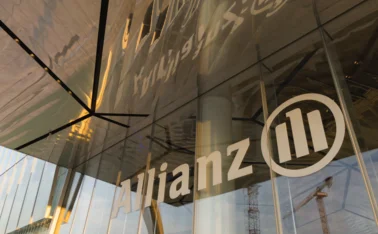
Post Europe Spotlight - The Spanish direct insurance market

At its traditionalist heart, the insurance industry has always existed on the tried and tested intermediary-based distribution channel, with the broker or agent, a champion of the policyholder, working tirelessly to find the consumer the best deal.
But the industry changed with the introduction of the direct model. Twenty five years ago, pioneers Direct Line in the UK, rewrote the rule book paving the way for other direct players to make significant headway in the personal lines market.
"When Direct Line entered the market in the late 80s, not many UK insurance companies took it very seriously," explains Alfonso Smith, owner of consultancy Atlas Business Management.
"But being a fresh player, Direct Line didn't have the same legacy reserving problems as the others with no intermediary acquisition costs to pay for its business was able to offer policyholders' with more competitive premiums.
"By the time the UK insurers could react it had that all important head start and an established and recognisable brand."
He adds: "The success that Direct Line experienced in the UK is unlikely to be replicated in one of the European countries as the playing field is now very different."
But just how different is the UK from the rest of Europe. The Direct Line model has been replicated across the continent into other territories, not least Spain. But has the direct market been greeted as enthusiastically there as in the UK?
According to, Allianz Seguros spokesman Jean Louis Liedana, the model has been present in Spain for the last two decades but still has not gained the popularity it has in the UK.
"Despite several entrants during the last 20 years, the market share of direct insurance is still low," he says. "That is because of the great importance that Spanish customers give to agents and brokers. They desire that face-to-face opportunity to solve any issue that could arise."
"In the Spanish market there has yet to be a boom of direct companies," adds Carlos Larrea senior manager for EMB's in Spain and Portugal. "There hasn't been the culture for the direct market. Until the mid 80's the only insurance channel was brokers."
Steady flow of new players
While, the direct market hasn't blossomed in Spain in the same manner it did in the UK, it has still seen steady growth, especially more recently, with the key players Linea Directa, (once half owned by Direct Line's parent Royal Bank of Scotland but now owned by Bankinter) Axa's Direct Seguros, Liberty's Genesis, and Allianz' Fenix Directo, all performing well.
Figures produced by Axa, show that the model's use in the motor market has increased steadily since 2002, when it accounted for 5.7% of sales to 2008, when 9.1% of policies were sold directly.
Overall, according to EMB's statistics, the direct market accounted for 5.1% of the personal lines market overall in 2008, while another new entrant Admiral's figures put the share at 9%.
Besides the loyalty to the broker market, the direct market has also taken longer to find its footing due to the strength of bancassurance - the offering of organised insurance services in the financial sector - in Spain.
While the model is at its most prominent in the life sector, according to EMB research it accounts for around 70% of the sales in the market, it also a key distribution channel in the household sector (where it has 46% share) and the motor sector (where it holds almost 10%).
"In total the Spanish banking system has 45 000 branches on the high street," Mr Larrea continues. "It has the biggest network of banks globally compared to the size of the country. It is really powerful."
Oscar Huerta managing director of EMB for Spain and Portugal adds: "Bancassurance will continue to be strong. Banks are more and more aware that insurance can be a profitable business.
"They know a lot about their clients, they know their income, they know about their assets, they know everything. They even know how much they pay a month for their insurance."
But according to Crawford country manager for Spain, Felipe Gangoiti, the direct market may be able to challenge the strength of bancassurance due to its relatively low level of customer service.
"Banks are able to sell very easily as they have a long-standing sales channel and they are in a strong position to offer products to consumers but they do have a problem with service," he says. "Currently the service offered direct and through brokers is currently better than that offered by banks."
Broadband help
A recent crucial development in the direct sector in the UK has been the emergence of widely available reliable broadband and the rise of the aggregator. The comparison site market has invigorated the direct model in the UK, having a similar effect on the general insurance sector as Direct Line did when it burst onto the market some 25 years ago.
A study produced by Datamonitor in December 2009, revealed that in household insurance alone 10% of new UK business is generated through popular websites such as Go Compare, Compare the Market and Tesco Compare. The figure, in 2007, stood at 2%.
However, in Spain aggregators have yet to have the same effect on the direct market.
"At the moment they are tiny," explains Admiral finance director Kevin Chidwick. "We started with Rastreator (Admiral's Spanish aggregator) in the first half of last year and we were the first comparison site to market on television. There are only one or two players who are in this area so it is not like in the UK.
Mr Chidwick clams that with the internet shopping culture still yet to fully catch on in Spain aggregators could struggle to make an impact in the short term.
"We haven't yet had the internet shopping culture that began to develop in the UK at the turn of the century. There was a pent up demand for price comparison in the UK, which made life much easier. Until we get that in Spain it will be more difficult for them to grow."
Axa spokesperson Emmanuel Touzeau agrees and argues that, while Spanish aggregators were still in their infancy, the comparison sites are beginning to make headway.
"The popularity of aggregators is certainly gaining traction," he says. "Newer players have come into the market recently but they still have a small share of the direct market and in turn a low percentage of the overall market."
An important factor in the future of the Spanish aggregator sector is its development alongside the rest of the direct sector. While the relationship between insurers and aggregators in the UK has been fractious with major players like Direct Line and Aviva Direct deciding against this route, the Spanish market could be more amenable.
Mr Smith says: "Leading price comparison sites from UK and Italy are already entering the Spanish market. And they are unlikely to present a threat to the direct insures but actively contribute to changing the local motor insurance buying habits which will be a win-win for all."
Profitable opportunities
While the direct market in Spain may not be as advanced as it is in the UK it is certainly proving to be profitable for those engaged in this market.
"Spain starts from a good market position, certainly one that was better than the UK when it started writing direct business," Mr Chidwick explains. "It has underwriting margins which are very nice. Combined ratios are in the mid 90s and if you are writing that sort of business and have good ancillary income alongside your underwriting profits you would be making a good return."
But how will the sector fare if the direct market in Spain continues its steady expansion. In an already fragmented market place where banks, brokers and direct underwriters are all after the end customer could margins begin to be squeezed significantly?
According to research by Moody's into Spanish Insurance in 2010, tough competition in the market will reduce profitability - largely due to the direct market.
The study highlighted Linea Directa as one of the few companies that reported a growth in GWP for 2009 but claimed that the overall growth of direct insurance is "unlikely to be spectacular in the near term".
Mr Leidana says that increased competition may affect the market, but that the insurers with the best products would be the ones that would ultimately prosper.
"The Spanish market has always been very competitive," he says. "The current cycle means that margins are likely to be reduced.
"However, customers do not value only prices but also other areas like: coverage, closeness, service, solvency, etc. So customer loyalty is not based on price only but also on other concrete issues, some of them different from what a direct company or any other technology-based distribution channel is able to offer."
While it may take some time for the direct market to gather momentum in Spain it is generally agreed that it is only a matter a time before it starts to dominate.
"I wonder why direct companies are not growing more," Mr Gangoiti concluded: "But publicity is starting to get strong and the service provided has been great. It really is just a question of time."
Overseas domination
The top players in the direct market in Spain traditionally come from abroad but some of the companies - Linea Directa, owned by Bankinter and Genesis - are managed entirely locally.
Major Direct Players - Their GWP and Overall Market Share
Linea Directa - Euros 644m (5.13%)
Direct Seguros - Euros 210m (1.67%)
Genesis - Euros 201m ( 1.60%)
Fenix Directo - Euros 56m (0.45%)
Balumba - Euros 21m ( 0.12%)
Click Seguros - Euros 2m (0.01%)
Zurich Connect - New entrant, no data available yet
Total Euros 1133m and 9.00%
Source: Admiral 2008
Industry comment
Alfonso Smith, owner of Atlas Business management says: "There are lots of regional companies in Spain but the big players are the internationals and they are all promoting direct business.
"Within EU regulation, a company can operate in any country where it is registered, but can also compete from outside of that country under European law. You don't need, as a British company, to go into Spain. You can do it straight from England via the internet and work on a UK infrastructure."
Carlos Larrea, senior manager for EMB in Spain and Portugal adds: "I don't think it would be that difficult for companies both from Spain or overseas to enter the market and make money. If you have a good plan, know the competition and know the distribution you can enter the market and prosper."
Market share for direct players
PORTFOLIO
% of market share 2008
Agents and Brokers 66.1%
Bancassurance 10.2%
Direct 5.1%
Call Centre 4.1%
e-commerce 1%
Other (mainly own offices) 14.6%
NEW BUSINESS
% of market share 2008
Agents and Brokers 72.9%
Bancassurance 13.4%
Direct 5.2%
Call Centre 3.67%
e-commerce 1.58%
Other (mainly own offices) 8.5%
Source: EMB 2008
Only users who have a paid subscription or are part of a corporate subscription are able to print or copy content.
To access these options, along with all other subscription benefits, please contact info@postonline.co.uk or view our subscription options here: http://subscriptions.postonline.co.uk/subscribe
You are currently unable to print this content. Please contact info@postonline.co.uk to find out more.
You are currently unable to copy this content. Please contact info@postonline.co.uk to find out more.
Copyright Infopro Digital Limited. All rights reserved.
As outlined in our terms and conditions, https://www.infopro-digital.com/terms-and-conditions/subscriptions/ (point 2.4), printing is limited to a single copy.
If you would like to purchase additional rights please email info@postonline.co.uk
Copyright Infopro Digital Limited. All rights reserved.
You may share this content using our article tools. As outlined in our terms and conditions, https://www.infopro-digital.com/terms-and-conditions/subscriptions/ (clause 2.4), an Authorised User may only make one copy of the materials for their own personal use. You must also comply with the restrictions in clause 2.5.
If you would like to purchase additional rights please email info@postonline.co.uk







